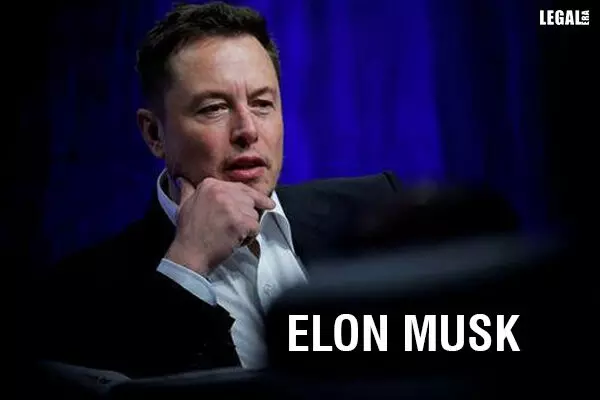- Home
- News
- Articles+
- Aerospace
- Agriculture
- Alternate Dispute Resolution
- Banking and Finance
- Bankruptcy
- Book Review
- Bribery & Corruption
- Commercial Litigation
- Competition Law
- Conference Reports
- Consumer Products
- Contract
- Corporate Governance
- Corporate Law
- Covid-19
- Cryptocurrency
- Cybersecurity
- Data Protection
- Defence
- Digital Economy
- E-commerce
- Employment Law
- Energy and Natural Resources
- Entertainment and Sports Law
- Environmental Law
- FDI
- Food and Beverage
- Health Care
- IBC Diaries
- Insurance Law
- Intellectual Property
- International Law
- Know the Law
- Labour Laws
- Litigation
- Litigation Funding
- Manufacturing
- Mergers & Acquisitions
- NFTs
- Privacy
- Private Equity
- Project Finance
- Real Estate
- Risk and Compliance
- Technology Media and Telecom
- Tributes
- Zoom In
- Take On Board
- In Focus
- Law & Policy and Regulation
- IP & Tech Era
- Viewpoint
- Arbitration & Mediation
- Tax
- Student Corner
- AI
- ESG
- Gaming
- Inclusion & Diversity
- Law Firms
- In-House
- Rankings
- E-Magazine
- Legal Era TV
- Events
- News
- Articles
- Aerospace
- Agriculture
- Alternate Dispute Resolution
- Banking and Finance
- Bankruptcy
- Book Review
- Bribery & Corruption
- Commercial Litigation
- Competition Law
- Conference Reports
- Consumer Products
- Contract
- Corporate Governance
- Corporate Law
- Covid-19
- Cryptocurrency
- Cybersecurity
- Data Protection
- Defence
- Digital Economy
- E-commerce
- Employment Law
- Energy and Natural Resources
- Entertainment and Sports Law
- Environmental Law
- FDI
- Food and Beverage
- Health Care
- IBC Diaries
- Insurance Law
- Intellectual Property
- International Law
- Know the Law
- Labour Laws
- Litigation
- Litigation Funding
- Manufacturing
- Mergers & Acquisitions
- NFTs
- Privacy
- Private Equity
- Project Finance
- Real Estate
- Risk and Compliance
- Technology Media and Telecom
- Tributes
- Zoom In
- Take On Board
- In Focus
- Law & Policy and Regulation
- IP & Tech Era
- Viewpoint
- Arbitration & Mediation
- Tax
- Student Corner
- AI
- ESG
- Gaming
- Inclusion & Diversity
- Law Firms
- In-House
- Rankings
- E-Magazine
- Legal Era TV
- Events
U.S. Court of Appeals Rejected Elon Musk’s Bid to Modify 2018 Fraud Settlement with Securities and Exchange Commission

U.S. Court of Appeals Rejected Elon Musk’s Bid to Modify 2018 Fraud Settlement with Securities and Exchange Commission
The U.S. Federal Appeals Court in Manhattan rejected Twitter owner- Elon Musk’s bid to toss or modify his 2018 fraud settlement with the US Securities and Exchange Commission, leaving in place a consent decree that requires his tweets to be approved by a lawyer before he can post them.
Musk lost his bid to end a 2018 settlement with the US Securities and Exchange Commission (SEC) regarding his controversial “funding secured” tweets.
The Court of Appeals for the Second Circuit in New York City wrote in its ruling, “Each tweet plausibly violated the terms of the consent decree.”
Musk must continue to have certain Tesla-related tweets pre-approved by a lawyer.
The whole ordeal started with a tweet on 7th August, 2018, in which Musk claimed to have the funding to take Tesla private at $420 a share. Tesla has been a publicly traded company since 2010.
The SEC immediately launched an investigation, eventually concluding that, while he had held a few meetings with Saudi Arabia’s sovereign wealth fund, Musk “had never discussed a going-private transaction at $420 per share with any potential funding source.”
Musk eventually reached a settlement with the SEC requiring him to step down as chairman of Tesla and establishing the position of Twitter sitter.
In February, Musk was not found liable for losses incurred by investors who accused him of fraud based on his tweets in August 2018 that he was thinking of taking the company private. Musk was on the hook for potentially billions of dollars of damages had the jury found him liable for those losses.
Two other tweets by Musk had misleading information about Tesla's vehicle production and a poll proposing Musk sell 10 per cent of his Tesla stock.
Further, in February 2023, another Court in the US had acquitted Musk in a class-action securities fraud over his tweets about taking Tesla private.
The August 2018 tweet resulted in Musk and Tesla reaching a settlement of fraud charges with the U.S. SEC.
The settlement included $40 million in penalties, split equally between the company and Musk.
The EV company Tesla also agreed to pay a separate $20 million penalty.



